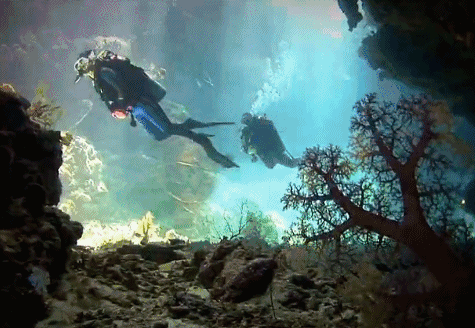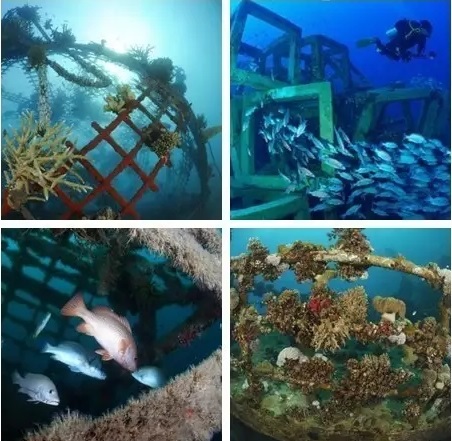Artificial reefs can help local economies and have a positive impact on the ecological environment, but at the same time they have a negative impact on the ecological environment.
When a structure is intentionally placed on the seafloor as an artificial reef, it can create habitats for a variety of marine life. For this reason, artificial reefs are often popular destinations for divers, snorkelers and fishermen.

In areas such as Keys, Florida, where there is a lot of foot traffic, especially novice or unknowing divers can cause damage to the reefs. Research suggests that, in some cases, artificial reefs may help deflect some of the stress on natural reefs, while allowing visitors to see different marine life. Because many divers, snorkelers and anglers rent boats through local businesses, artificial reefs can have a positive impact on the local economy. In this case, artificial reefs would be considered a "win-win" situation for both the economy and the environment.
However, in some cases, the negative ecological impacts of artificial reefs may outweigh the potential economic benefits. For example, the development of artificial reefs may lead to an increase in overall visits to an area, which means an increase in the number of visitors to both artificial reefs and natural coral reefs. Or, if artificial reefs are not carefully planned or built, they can actually destroy natural habitats. In addition, monitoring observations suggest that many man-made structures are rapidly becoming habitats and potentially spawning sources for invasive species such as orange cup corals.

To ensure the economic benefits of artificial reefs while maintaining the integrity of natural resources, extensive planning, evaluation and permitting must be undertaken before any artificial reefs are developed in Florida's Keys National Marine Sanctuary. Long-term monitoring and research on the use and ecological impact of intentionally sunk vessels in protected areas is an important part of future decisions to build additional artificial reefs.
Source: NOAA
Original title:"While artificial reefs generally enhance local economies, they can have both positive and negative effects on ecosystems"